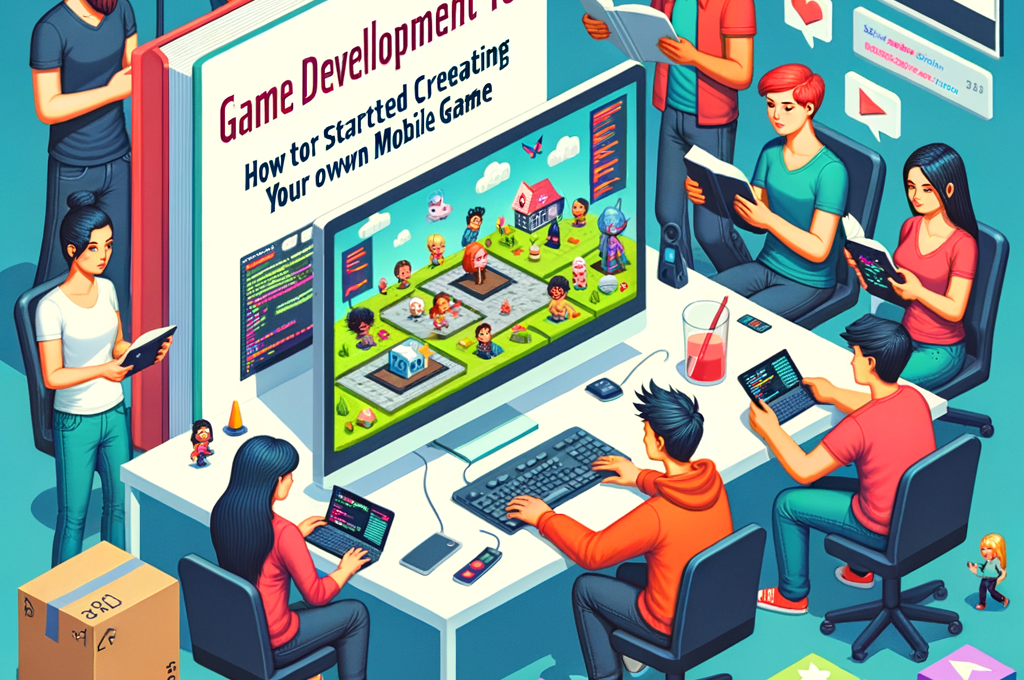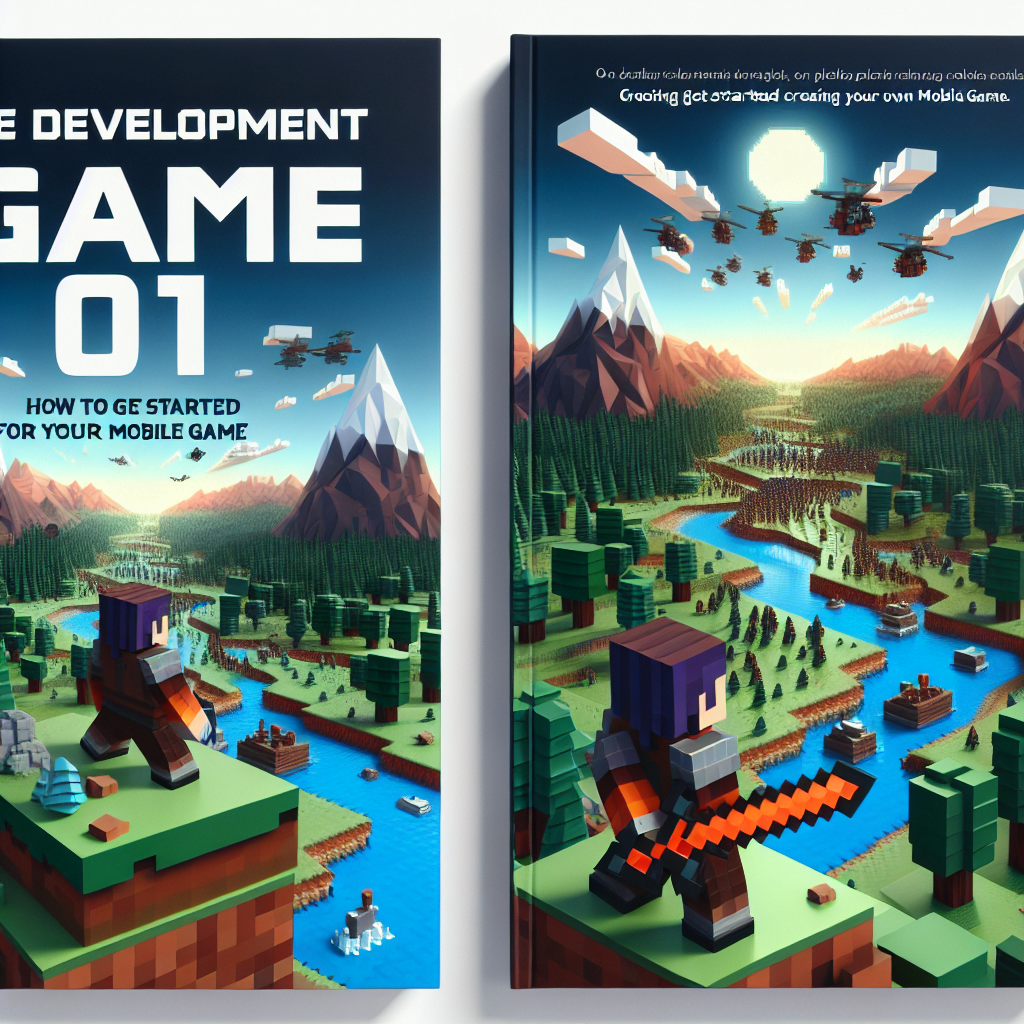Mobile gaming has exploded in popularity over the past decade, becoming a multi-billion dollar industry. With the rise of smartphones and tablets, creating your own mobile game has never been more accessible. However, the process can be daunting for beginners. This article will guide you through the essential steps to get started on your journey to creating a successful mobile game.
Understanding the Basics of Game Development
Before diving into the technical aspects, it’s crucial to understand the basics of game development. Game development involves several stages, including concept creation, design, development, testing, and launch. Each stage requires different skills and tools, and understanding these will help you navigate the process more effectively.
Concept Creation
The first step in game development is coming up with a compelling game concept. This involves brainstorming ideas, researching existing games, and identifying your target audience. A well-defined concept will serve as the foundation for your game and guide your decisions throughout the development process.
Design
Once you have a solid concept, the next step is to design your game. This includes creating the game’s mechanics, story, characters, and levels. Tools like storyboards and wireframes can help you visualize your game and plan its structure. Additionally, consider the user experience (UX) and user interface (UI) design to ensure your game is intuitive and engaging.
Choosing the Right Tools and Platforms
With your game concept and design in place, it’s time to choose the right tools and platforms for development. There are several game development engines and frameworks available, each with its own strengths and weaknesses. Some popular options include:
- Unity: A versatile and widely-used game engine that supports both 2D and 3D game development.
- Unreal Engine: Known for its high-quality graphics and powerful features, ideal for more complex games.
- Godot: An open-source game engine that’s beginner-friendly and supports both 2D and 3D development.
- Construct: A drag-and-drop game development tool that’s perfect for beginners with no coding experience.
When choosing a platform, consider your target audience and the devices they use. Popular platforms for mobile games include iOS, Android, and Windows Mobile. Each platform has its own development requirements and guidelines, so be sure to familiarize yourself with them before starting.
Learning to Code
While some game development tools offer drag-and-drop functionality, learning to code can significantly enhance your capabilities and allow you to create more complex games. Popular programming languages for game development include:
- C#: Widely used with Unity, offering a balance of simplicity and power.
- C++: Commonly used with Unreal Engine, known for its performance and flexibility.
- Python: Often used for scripting and prototyping, thanks to its simplicity and readability.
- JavaScript: Useful for web-based games and some mobile game frameworks.
There are numerous online resources, tutorials, and courses available to help you learn these languages. Websites like Codecademy, Coursera, and Udemy offer comprehensive courses on game development and programming.
Building and Testing Your Game
With your tools and skills in place, it’s time to start building your game. Begin by creating a prototype to test your game’s core mechanics and gather feedback. This will help you identify any issues and make necessary adjustments before investing more time and resources into development.
Once your prototype is polished, move on to full-scale development. This involves creating all the assets, coding the game logic, and integrating sound and music. Regularly test your game throughout the development process to ensure it runs smoothly and is free of bugs.
Launching and Marketing Your Game
After months of hard work, your game is finally ready for launch. However, releasing your game is just the beginning. To ensure its success, you’ll need to market it effectively. Some strategies for promoting your game include:
- Creating a website and social media profiles to showcase your game and engage with potential players.
- Reaching out to gaming blogs and influencers for reviews and coverage.
- Participating in online forums and communities related to game development and mobile gaming.
- Utilizing app store optimization (ASO) techniques to improve your game’s visibility in app stores.
Additionally, consider offering in-game purchases or ads to monetize your game and generate revenue. Keep track of your game’s performance and user feedback to make continuous improvements and updates.
Try our Lates version of Drop Ball Explosion for android Here!
Case Studies and Examples
To illustrate the process of game development, let’s look at a few successful mobile games and their development journeys:
Flappy Bird
Flappy Bird, developed by Dong Nguyen, is a simple yet addictive game that became a viral sensation in 2014. Nguyen created the game using the Cocos2d-x framework and released it on both iOS and Android platforms. Despite its basic mechanics and graphics, Flappy Bird’s challenging gameplay and viral nature led to millions of downloads and significant revenue from ads.
Monument Valley
Monument Valley, developed by Ustwo Games, is a visually stunning puzzle game that gained widespread acclaim for its unique art style and innovative gameplay. The game was built using Unity and released on iOS and Android. Monument Valley’s success can be attributed to its captivating design, engaging puzzles, and effective marketing strategies, including featuring the game in Apple’s App Store.
Conclusion
Creating your own mobile game can be a rewarding and profitable endeavor, but it requires careful planning, dedication, and the right tools. By understanding the basics of game development, choosing the appropriate tools and platforms, learning to code, and effectively marketing your game, you can increase your chances of success. Remember to stay persistent, continuously learn, and adapt to the ever-evolving world of mobile gaming.
Question and Answer
Q: Do I need to know how to code to create a mobile game?
A: While knowing how to code can significantly enhance your capabilities, there are game development tools like Construct that offer drag-and-drop functionality, allowing you to create games without coding experience.
Q: How long does it take to develop a mobile game?
Try our Lates version of Drop Ball Explosion for android Here!


